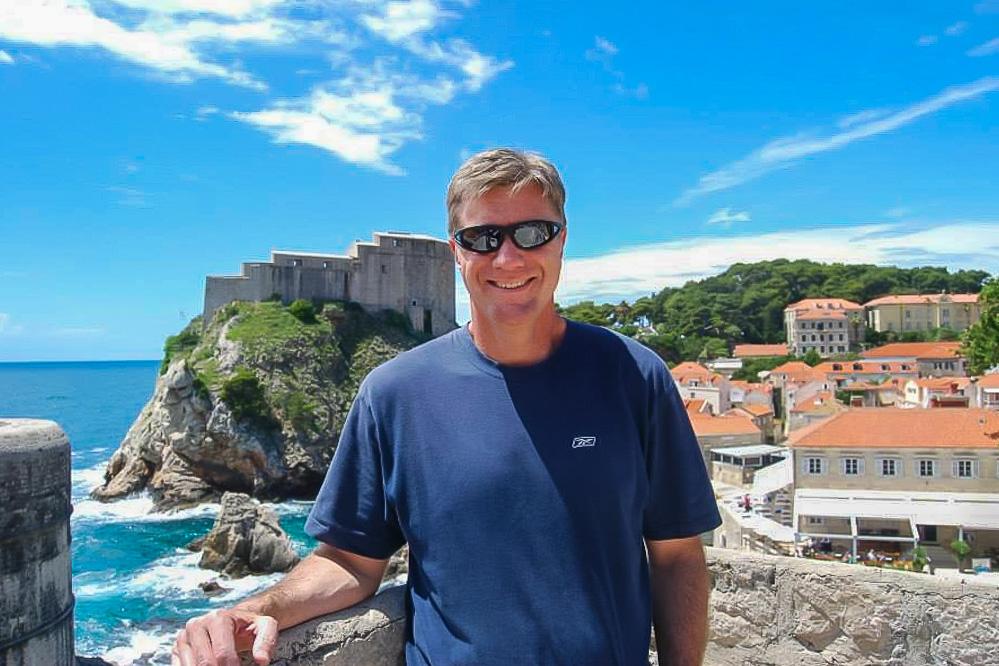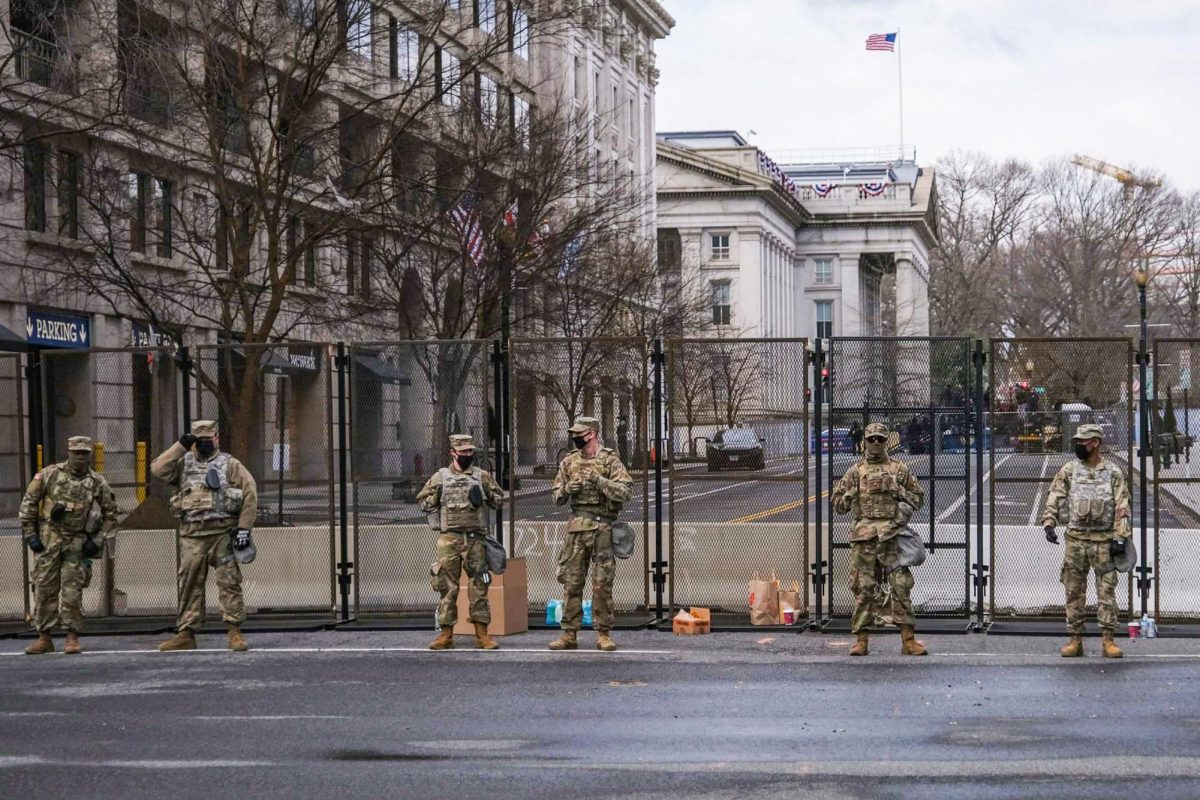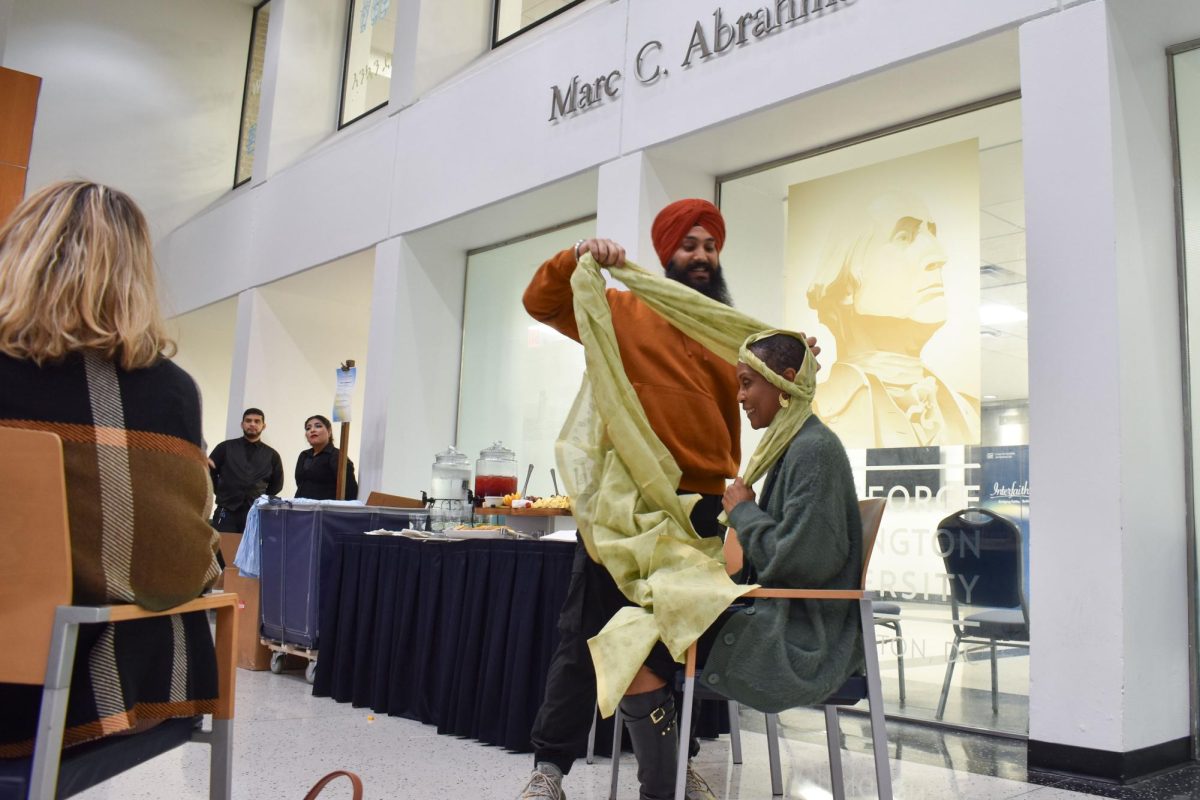Joe Dymond, an assistant professor of geography, died last week after a seven-month battle against acute myeloid leukemia. He was 53.
Dymond began teaching geography at GW in 2002 and spent the majority of his teaching career in the geography department, faculty said. Dymond was on medical leave this year but taught human geography, political geography and Latin American geography courses last year, in addition to a geography proseminar.
Dymond was diagnosed with leukemia last May and suffered respiratory failure after multiple chemotherapy treatments and a bone marrow transplant, according to a Facebook post by the geography department Tuesday.
Dymond began his career in the mid 1990s at Louisiana State University and taught at Towson University before moving to GW, according to the post. During his time at the University, Dymond received multiple accolades for excellence in teaching, including an appointment to the GW Academy of Distinguished Teachers and the Morton A. Bender Teaching Award, faculty said.
Students and faculty said Dymond will be remembered for his passion for geography and kindness to those around him.
Marie Price, the interim chair of the geography department, said Dymond continued to share his love for geography with his doctoral students “even in his hospital bed.” She said he distributed copies of a textbook about world regional geography that he had co-written to his caretakers at his hospital.
“When he was feeling terrible, he still would talk about what he was passionate about and share it with people and get them excited,” she said.
Price said Dymond helped the geography department launch YouthMappers, an organization of students at universities around the world who use open-source maps and mapping techniques to abate humanitarian crises and aid development work.
“He really believed in the power of geography and mapping to do practical things, to make people’s lives better,” she said.
Price said Dymond was known for his lighthearted ability to take a joke, remembering one “classic Joe moment” after an April Fools’ Day prank about five years ago. Some students stacked cans of Dymond’s favorite beverage, Diet Coke, from the floor to ceiling of his office and created a “wall” of the soft drink, she said.
“He had just come in for a faculty meeting,” Price said. “He just walked in and said, ‘You have to see this.’”
Tommy Elms, a second-year master’s student studying geography, said Dymond was “approachable” and had an open-door policy during office hours. Elms said Dymond was able to “engage” students individually in his lectures even when he taught classes with more than 100 students.
“He’s the guy that knows everyone’s name after the second week,” he said. “He’s the guy that’s emailing you being like, ‘Your assignments have been kind of bad the last couple of weeks, is everything OK?’ – he always had time for his students.”
Yannik Omictin, a sophomore majoring in geography, said Dymond was “measured” and had an “incredible brand of kindness.” Omictin said he looked up to Dymond as one of the “head honchos” of the geography department.
“I remember going home with my parents at winter break, after I took his course, and I was like, ‘Oh my gosh, I met basically who I want to be when I grow up,’” he said. “The geography department is as close as it is in part because Joseph Dymond was the glue. Professor Dymond added that extra bit of kindness.”
Richard Hinton, the geography department’s spatial analysis lab manager, said Dymond took trips with students to destinations like Singapore, Nepal, Panama and Botswana. Hinton said traveling to the Okavango Delta in Botswana last year was a “bucket list item” for Dymond.
“He mentioned that he had first heard about it in a National Geographic article when he was maybe a teenager or something,” he said. “He read about it and had just been fascinated with it ever since. He was very happy to be able to share the experience with a great group of students who experienced it with him.”
Hinton said Dymond planned to go to Pretoria, South Africa this month but was unable to because of his hospitalization last May.
Jacob Milley, a senior majoring in geography, went to Botswana with Dymond and said he took students into a village in the middle of the Kalahari Desert, where they interacted with a culture “most people probably don’t even know exists.” Milley said students on the trip “could see the joy in Professor Dymond’s eyes.”
Milley said his conversations and classes with Dymond were the reason he decided to declare a geography major.
“I really had no idea what I wanted to study until I took his human geography class,” he said. “After that, I was hooked. He made me want to come to class. He made me want to further my knowledge.”
In place of flowers, Dymond’s family asked for contributions to the geography department’s new Joseph Dymond Scholarship Fund, which will be finalized in the coming weeks. A funeral service will be held for Dymond on Jan. 26 at 1 p.m. at St. Peter’s Parish in Olney, Md.
Dymond is survived by his wife, Maureen Erny Dymond; his two children, Madison Lynn Dymond and Jose Manuel Dymond; his parents, William T. and Philomena Dymond; his sisters, Michele Heacox and Lynn Hutchinson; his brother, William T. Dymond, Jr.; and his six nieces and nephews: Corinne Dymond, Helen Hutchinson, Jenna Dymond, Michael Dymond, Rachel Heacox and Ryan Heacox.





